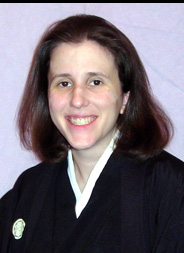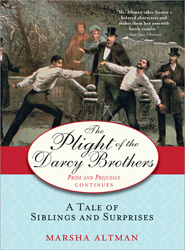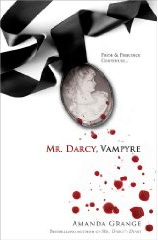Review: Pride and Pyramids: Mr. Darcy in Egypt by Amanda Grange and Jacqueline Webb
Posted in Review on March 8th, 2013
Pride and Pyramids: Mr. Darcy in Eqypt by Amanda Grange and Jacqueline Webb. Sourcebooks Landmark (July 1, 2012). ISBN: 978-1402265341. Trade Paperback ($14.99 /Amazon $10.99) Kindle eBook $10.09.
Elizabeth and Fitzwilliam Darcy have been married for fifteen years and have six children (Beth 13, William 12, John 11, Laurence 9, Jane 8, and Margaret 6). Laurence was the only boy who had not yet gone away to school and Elizabeth was already dreading the day when she’d have to send him to boarding school too.
The Darcys had planned to have a portrait of the family done and Mr. Paul Inkworthy has been hired to do the preliminary sketches, as the artist doing the finished work does not travel. Mr. Inkworthy was good at his job and also kind enough to offer Beth some helpful feedback on her drawings. He was also unobtrusive and undemanding but his preliminary sketches were excellent.
This was the era when the people of Britain and America were captivated by anything Egyptian. Edward Fitzwilliam, Col. Fitzwilliam’s youngest brother, had been enthralled by Egypt when, as a child, he’d heard the tales of his father’s adventures in Egypt with Darcy’s father and another man. They’d been treasure hunting and nearly died. It was believed that they’d found a tomb filled with treasure but had lost the map and no longer could find it. Edward was determined to go on the next expedition led by Sir Matthew Rosen, who currently had an exhibit at the British Museum. He’d come to visit the Darcy’s hoping they’d support him in his efforts with his family.
Darcy realized that Edward would go no matter what they said. He also realized that Elizabeth was captivated by the idea of going to Egypt and their children were at the right age for travel. They decided to join Edward. The family visit to the museum and the enthusiasm of the children would have persuaded them if they weren’t already leaning in that direction anyway.
Meanwhile, Margaret had taken to a small wooden doll of an Egyptian woman that Edward had brought to the house when he’d come for Darcy’s assistance. Margaret said the doll’s name was Aahotep, she was sad, and that made her mean to other people. This is when I believed that this was going to be one of those paranormal-leaning books. Margaret’s doll and the way she kept it with her and spoke for it and to it reminded me of several books I’d read where a character got possessed by a doll and did things they shouldn’t. Since Margaret was so young, this bothered me, but while this particular thread of the story gave me the willies it was not as dark as you might think and the author’s took it in a genuinely different direction than you’d expect.
Needless to say, traveling with children, servants, tutors, governesses, and all their luggage and household items required a lot of consultations with others of their class who had traveled to Egypt. They also asked Mr. Inkworthy to join them to sketch the family as they traveled so as to have a series of pictures to remind them what the trip was like when they returned home.
Organizing such a trip was of like planning a small war, including renting a ship for their own use, and making sure that all the connections could be made all along the way. They also needed to hire a local guide to aid them when they arrived in Egypt. And there was the necessity to notify family that they were leaving. Mrs. Bennet being their biggest worry. She insisted on seeing them off at the port, an event that caused a huge change in their plans.
Naturally, since Mrs. Bennet knew about the trip, Lydia also knew. Thus Wickham hatches a plan that he believes will allow him to get even with Darcy. Lydia, of course, is as obtuse as usual, but a bit wiser to the plotting of her husband. But as you’d guess she’s up for an adventure.
All of these subplots come together in Egypt for an exciting adventure that carries real danger for all the Darcys. The dig and the camp reminded me a lot of Elizabeth Peters’ books featuring Amelia Peabody on archeological digs in Egypt.
I enjoyed reading Pride and Pyramids. It takes Elizabeth and Darcy out of the familiar and yet keeps them in their time period and consistent with having had years to get to know and understand each other. They are parents and concerned for their family and their future. But still playful with each other and in love.
Fans of Austen’s characters will enjoy this follow-on and the growth of Elizabeth and Darcy. Their core character remains and the story grows out of who they are and where they stand in society.
Get it and enjoy. I’d love to hear from those who have already read the book.
 I’m the author of
I’m the author of  A prime example is the first book, which got a lot of criticism for having Darcy be a lush and therefore the butt of several jokes while in college. I didn’t think making Darcy a lush was at all negative to his character. You work up a tolerance for alcohol by drinking a lot, and Regency gentlemen drank more than a lot. The idea that Darcy has a lower tolerance means that he is very conservative in his alcohol consumption, perhaps fearing that a slovenly image would harm his family name (which is so clearly important to him in Austen’s work), and as a result he doesn’t have much of a tolerance compared to his peers, so when he does drink, he gets very drunk quickly. Since Darcy lives on his high horse, his college friends (and Wickham, of course) take any advantage they can get to knock him off it. In other words, he’s so virtuous that people enjoy seeing him knocked down a peg, albeit in a friendly way. I felt it was an amusing way to soften Darcy, but some readers didn’t agree, as Darcy is not supposed to be ridiculous. I can see their point, but it’s the story I wanted to write, so I wrote it.
A prime example is the first book, which got a lot of criticism for having Darcy be a lush and therefore the butt of several jokes while in college. I didn’t think making Darcy a lush was at all negative to his character. You work up a tolerance for alcohol by drinking a lot, and Regency gentlemen drank more than a lot. The idea that Darcy has a lower tolerance means that he is very conservative in his alcohol consumption, perhaps fearing that a slovenly image would harm his family name (which is so clearly important to him in Austen’s work), and as a result he doesn’t have much of a tolerance compared to his peers, so when he does drink, he gets very drunk quickly. Since Darcy lives on his high horse, his college friends (and Wickham, of course) take any advantage they can get to knock him off it. In other words, he’s so virtuous that people enjoy seeing him knocked down a peg, albeit in a friendly way. I felt it was an amusing way to soften Darcy, but some readers didn’t agree, as Darcy is not supposed to be ridiculous. I can see their point, but it’s the story I wanted to write, so I wrote it.